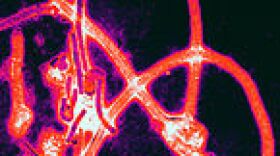Just two weeks ago, the first case of Ebola in the United States had been confirmed. My Commentary at the time reflected my belief that our nation’s colleges and universities needed to exercise “an abundance of caution” in their reaction to this entry of Ebola to our country. Universities and colleges not only host large numbers of functions where large numbers of people come together in close proximity – concerts, athletic events and the like – but they are also places which welcome thousands of West African visitors – students and faculty – from the very countries at the center of the Ebola outbreak. They also participate in international study programs where their faculty and students visit – often for prolonged periods of time – these very countries. As I stated at the time, I was very concerned by the apparent lack of rigorous protocols for prevention and management at most universities and, perhaps worse, the feeling expressed by many student health professionals that the chance of an outbreak is so low in the U.S. that more aggressive responses are not, at the moment, really necessary.
Now, two weeks later, the first Ebola patient has died, and two more cases of this often fatal disease have been documented, both health care workers caring for the Ebola victim in Dallas. As facts emerge about these two cases, I become increasingly convinced that our nation’s colleges and universities – indeed, our country as a whole – must begin to exercise the “abundance of caution” so frequently cited as necessary by our public health officials, but not, in my opinion, as yet practiced. I would submit that the time is now for the selection of and rigorous training in the protocols to be utilized for Ebola prevention and management. The time is now to move from “recommendations” to “requirements” in terms of travel and the monitoring of those found to have had possible contact with anyone exposed to the virus - either here, or abroad.
The reaction to this Ebola outbreak runs the gamut from “Fearbola” to complacency, neither of which will help us address the issues at hand. We cannot afford to be paralyzed by irrational fears or slow to respond due to false feelings of security given that Ebola, as lethal as it is, is not easily transmitted. The implementation of best practices is critically needed at our nation’s colleges and universities given the increased risk at these institutions. For instance, while the University at Buffalo has a protocol in place, it may well be insufficient. Students from Guinea, Liberia and Sierra Leone were screened 14 days after arrival and then pronounced healthy with no need for further follow up, despite the well-known 21-day incubation period of the virus. In terms of faculty and staff traveling to these countries, the CDC recommends “self-monitoring” for 21 days for any sign of disease. At the University at Albany they put it this way, “The only thing we can do is plead for people to be personally responsible.” Perhaps we need to be more aggressive and, like the University of North Texas, “require,” not “request,” that all official travel to these three West African countries be suspended. Such program and travel restrictions are, in my opinion, both necessary and acceptable in the face of the risks involved for the individual and the countless others to whom they may transmit this disease.
The time, I feel, is now to be aggressive in our prevention and management strategies. People on the front lines need to be trained and practiced in the protocols necessary to deal safely with this virulent virus. Staff at universities and colleges should have effective protocols in place now to identify those students and faculty who may have been exposed to the virus, as well as rigorous policies in place to minimize the risk of exposure, policies like the suspension of student and faculty exchanges to the affected countries. Surveillance and contact tracing, isolation and quarantine and travel restrictions – all used effectively in the SARS outbreak – do impact on critically-important values like privacy, liberty and freedom of movement. we have to deal with the question of how we reconcile these critical rights with our responsibility to protect the health and well being of the public. The time is now to deal with such questions and establish consistent, effective and realistic guidelines to stop this Ebola outbreak from spreading world-wide. Yes, the time is now.
Dr. Karen Hitchcock, Special Advisor in the consulting firm, Park Strategies, LLC, was President of the University at Albany, State University of New York, from 1996-2004, after which she went on to lead Queen’s University in Kingston, Ontario, Canada. Dr. Hitchcock has received honorary degrees from Albany Medical College and from her alma mater, St. Lawrence University. She has served on numerous regional and national committees and task forces dealing with issues in higher education, research and economic development. While at both the University at Albany and Queen’s University, she co-hosted the popular WAMC program, “The Best of our Knowledge”.
The views expressed by commentators are solely those of the authors, and do not necessarily reflect the views of this station or its management.


